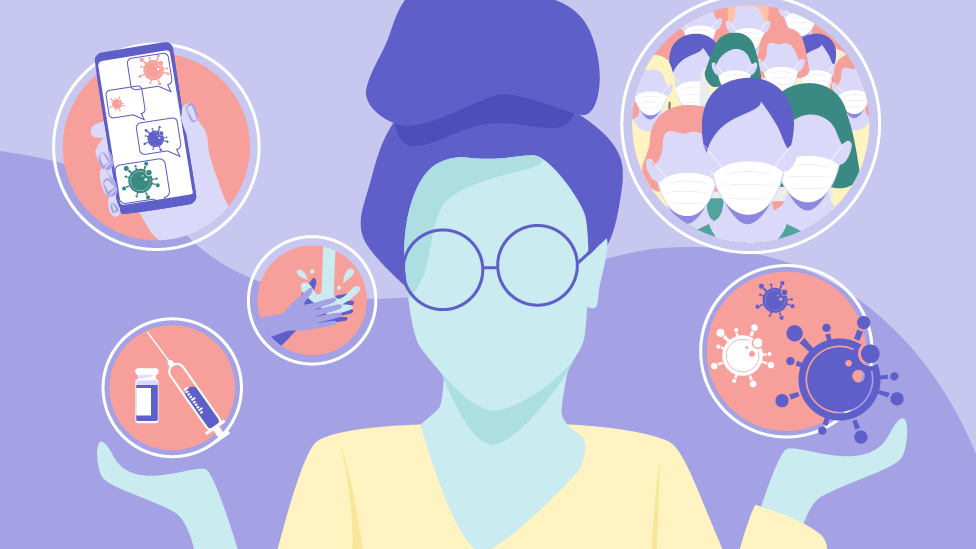Self-harm in over-65s ‘needs post-pandemic focus’
- Published
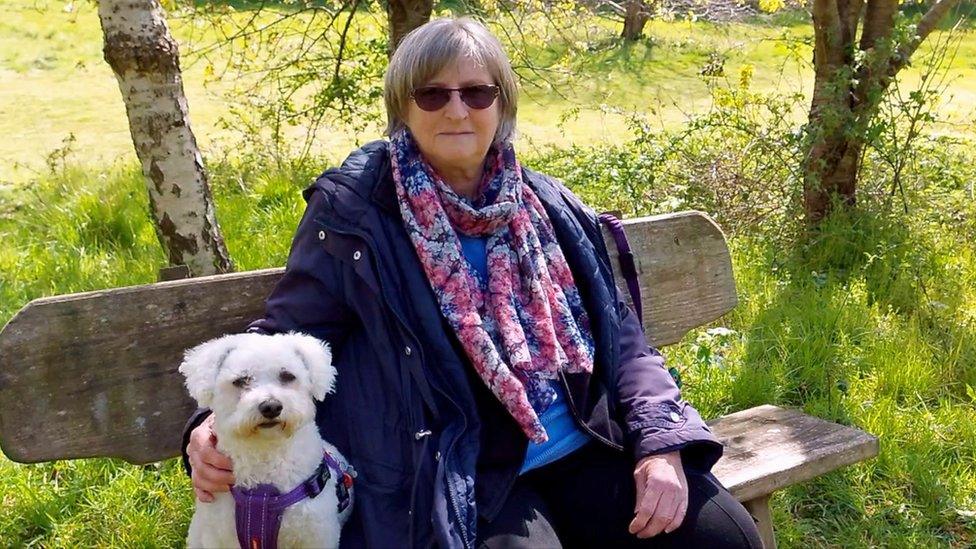
Wendy's mental health has struggled during the pandemic, with her mother having been seriously ill with Covid.
Self-harm among the over-65s must receive greater focus because of the increased risks associated with the pandemic, a leading expert has said.
Loneliness, bereavement and reluctance to access GPs can all be causes in older adults, said Prof Nav Kapur, who has produced guidelines on the subject.
He warned that in over-65s, without the right help, self-harm can also be a predictor of later suicide attempts.
The NHS's mental health director said it had expanded its community support.
Claire Murdoch added that its services, including face-to-face appointments, had "continued for all who needed them", and 24/7 crisis lines had been established.
Over-65s are hospitalised more than 5,000 times a year in England because of self-harm and self-poisoning, figures obtained from NHS Digital show.
'Pressure of caring for mum'
Wendy, 68, told the BBC that the pressures of the pandemic had led her to self-harm.
She said her mother's severe ill health with Covid, feelings of isolation and difficulty accessing her GP have all caused an added mental toll.
She added she felt like the weight of looking after her mother - who doctors initially said was unlikely to survive - was "on my shoulders".
"Trying to get her care sorted [once she left hospital] was when I felt at my most delicate," she explained, trying to hold back the tears.
"I was falling apart underneath... And that was when I ended up harming myself."
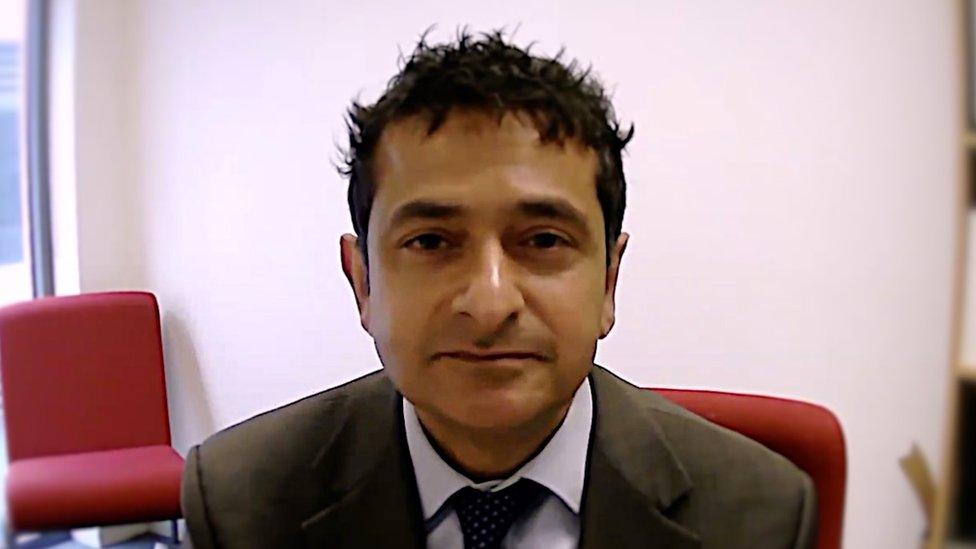
Prof Nav Kapur says every episode of self-harm must be taken seriously by heath professionals
Prof Kapur, from the University of Manchester, developed the National Institute for Health and Care Excellence guidelines on self-harm and suicide prevention followed by the NHS.
He said it was important to challenge the perception "that self-harm doesn't happen to older people", and added it was vital that GPs, specialist mental health services and the voluntary sector work together to provide care for patients.
Prof Kapur warned that if older individuals don't get support, it can leave them at a much greater risk of taking their own lives.
"In one of the studies we did, [we found that over-65s] who hurt themselves were about 150 times more likely to die by suicide than adults who hadn't - and that was about three times higher than young people who hurt themselves.
"So highlighting that every episode of self-harm needs to be taken seriously, especially in older adults, is a really important clinical message.
"Even now, sometimes self-harm is regarded as a low-risk behaviour by clinicians."
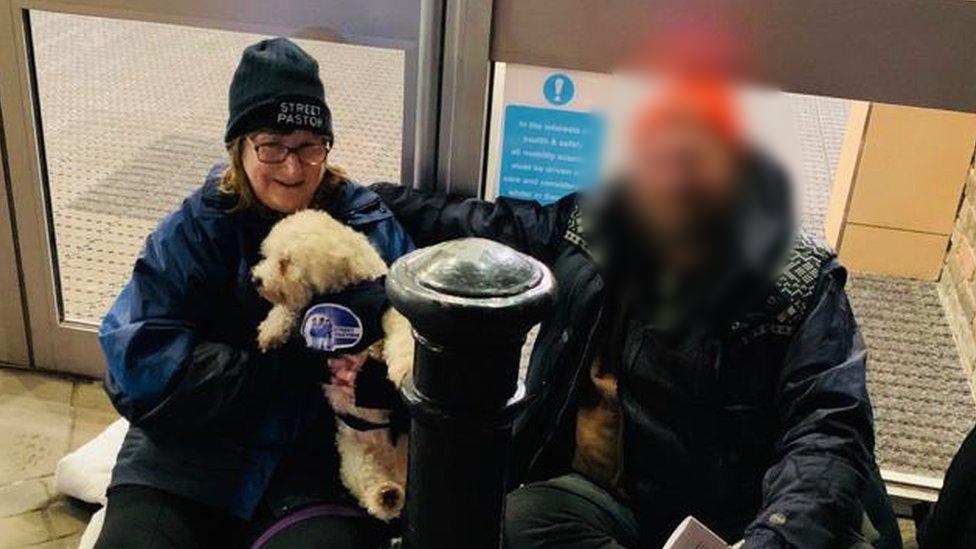
Wendy has been unable to do the things she values most during the pandemic, such as supporting homeless individuals
Wendy, from Northamptonshire, first struggled with self-harm in her early 20s.
For her, the support of friends, loved ones and medical professionals is vital - but hasn't been as easy to obtain since the pandemic began.
Her work volunteering as a street pastor and supporting homeless individuals - causes she feels passionately about - have had to be curtailed because of a mixture of lockdowns, and ill health from her own struggle with Covid.
Her relationships have been affected too.
"I couldn't see my partner because we live in separate houses," she explained.
While she used to drop into her GP when thoughts of self-harm arose, she said the extra stresses placed on the health service have meant this has not been possible.

How to help someone who is self-harming
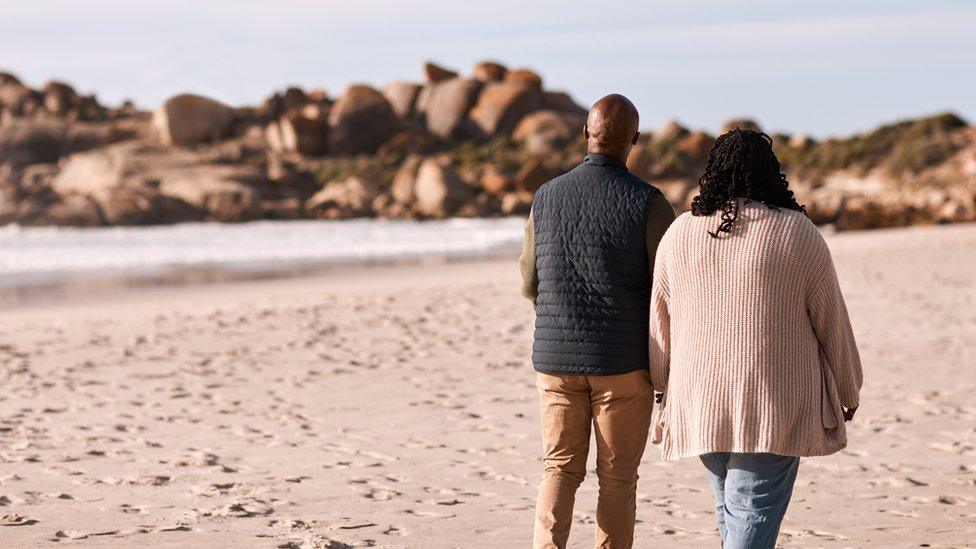
Listening without judgement and going for walks together can help those struggling with self-harm, the charity Mind says
Rachel Boyd, from the mental health charity Mind, says there are many ways to help those struggling with self-harm.
Give individuals space to talk, without being judgemental
Encourage them to find support through GPs, charities and online peer support groups
Understand that other factors that may be contributing to their self-harm - such as housing issues, job insecurity or financial worries - and help them seek advice
Be there for them as a friend. Do things you enjoy, such as going for a walk together

The self-harm organisation Harmless, which supports individuals ranging from young children to those in their 80s, describes over-65s as a "forgotten" group.
It said there was a stigma around self-harm that can prevent individuals from seeking support - including from family and friends.
Colin Menz, from the charity, said it was relatively common for older individuals to tell themselves "why am I still self-harming at this age?", or believe "I should have it under control by now".
He added it was important that every individual feels listened to and receives care that addresses the underlying causes of their self-harm.
"Each individual is dealing with their own distress... and their support needs are so different," he explained.
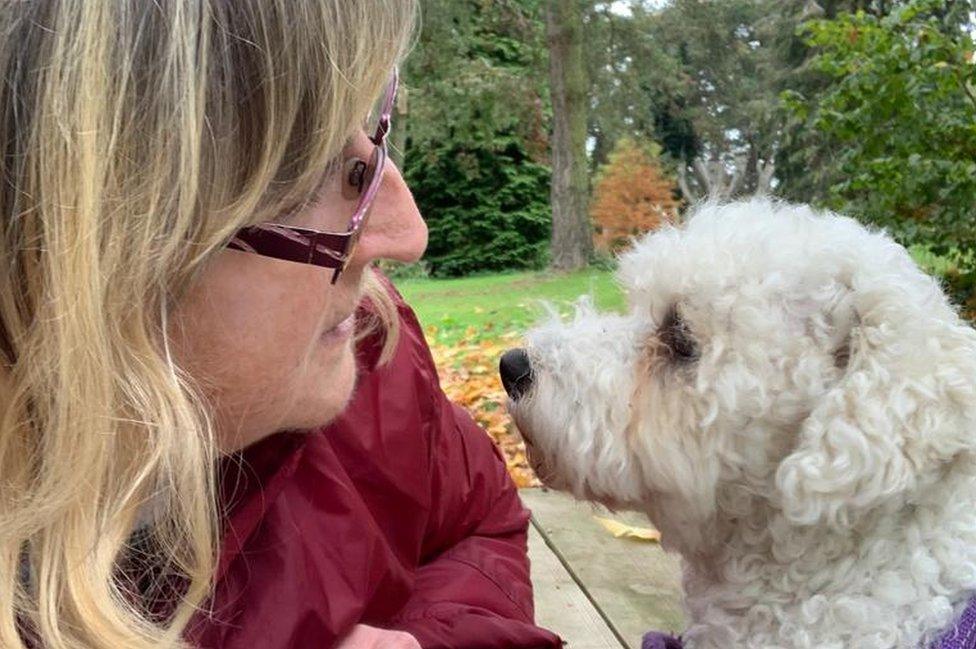
Wendy describes her dog Bo as a "lifeline" who is always able to comfort her.
As Wendy looks towards the future, she believes "there is always hope".
She is being supported by her local church, and said we can all play a role in helping others struggling with self-harm - simply by listening.
"Be kind. Have a cup of tea and a chat," she explained, as she sits with her closest companion, her dog Bo, in their favourite park.
"Somehow after a cup of tea and some kindness, you just feel better."
For information and support, a list of organisations can be found at bbc.co.uk/actionline.
Related topics
- Published16 February 2021
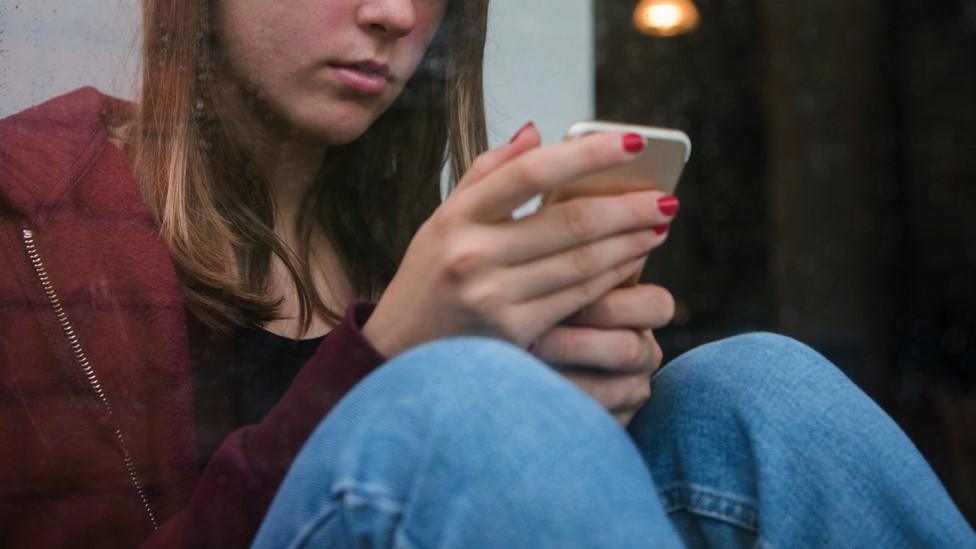
- Published10 May 2021
